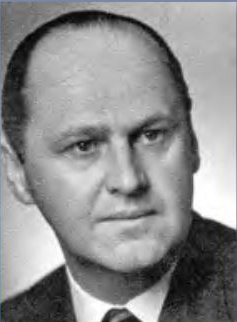Friedrich Peter facts for kids
Quick facts for kids
Friedrich Peter
|
|
|---|---|
 |
|
| Chairman of the Freedom Party | |
| In office 1956–1978 |
|
| Preceded by | Anton Reinthaller |
| Succeeded by | Alexander Götz |
| Personal details | |
| Born |
Friedrich Peter
13 July 1921 Attnang-Puchheim, Austria |
| Died | 25 September 2005 (aged 84) Vienna, Austria |
| Political party | Freedom Party of Austria (1956–2005) |
| Other political affiliations |
Nazi Party (1938–1945) |
| Occupation | Politician |
| Military service | |
| Allegiance | |
| Branch/service | Waffen-SS |
| Years of service | 1938–1945 |
| Rank | Obersturmführer |
| Unit | 1st SS Infantry Brigade |
| Battles/wars | |
Friedrich Peter (born July 13, 1921 – died September 25, 2005) was an important Austrian politician. He led the Freedom Party of Austria (FPÖ) from 1958 to 1978. During World War II, he was involved with the Nazi Party and served in the military.
Contents
Friedrich Peter's Early Life and War Service
Friedrich Peter was born in Attnang-Puchheim, a town in Upper Austria. His father was an engine driver, and his mother was a baker's daughter. In 1938, when he was 17, Peter joined the Nazi Party. He also volunteered to serve in the Waffen-SS, which was a military branch of the Nazi organization.
Serving in World War II
During World War II, Peter fought on both the western and eastern fronts. He reached the rank of Obersturmführer, which is like a lieutenant. He was part of the 10th regiment of the 1st SS Infantry Brigade. Some parts of this brigade were connected to groups called Einsatzgruppen. These groups were involved in very serious actions during the war.
After the war ended, American forces held Peter for about a year. This happened in a place called Glasenbach.
Life After the War
Once he was released, Peter became a teacher. He taught in elementary schools and also worked with students who needed special education. Later, he became a state school supervisor.
Peter's Political Journey
Friedrich Peter started his political career in Upper Austria. From 1955 to 1966, he was a deputy in the Upper Austrian Landtag. This is like a state parliament. He first represented a group called the "Verband der Unabhängigen." Later, he joined the Freedom Party (FPÖ).
Leading the Freedom Party
In 1958, Friedrich Peter became the chairman, or leader, of the Freedom Party. In 1966, he was elected to the Nationalrat. This is the main parliament of Austria. By 1970, he became the leader of his party's group in the Nationalrat.
Under Peter's leadership, the FPÖ tried to present itself as a more modern and open party. They wanted to be seen as a possible partner for other political parties. At a big party meeting in 1964, Peter said that both "nationalists and liberals" could find a place in the FPÖ. This idea of making the party more "liberal" caused some disagreements within the party. Some members even left.
Working with Other Parties
Even though the FPÖ had said they wouldn't support a "red chancellor" (meaning a chancellor from the Social Democratic Party, or SPÖ), they did support Bruno Kreisky's government in 1970. This government was a minority government, meaning it didn't have the most seats. This decision made the Freedom Party much more important in Austrian politics.
The Kreisky–Peter–Wiesenthal Discussion
After the 1975 elections, a man named Simon Wiesenthal shared information about Friedrich Peter's past. Wiesenthal was known for tracking down former Nazis. He reported that Peter had served in an SS unit involved in very serious actions during the war.
Chancellor Kreisky, who had himself been targeted by the Nazis, defended Peter. He said that Wiesenthal was using unfair methods.
In 1978, Peter stepped down as the leader of the Freedom Party. Alexander Götz took over his role. However, Peter still had a lot of influence behind the scenes.
Later Political Influence
In 1983, the Social Democratic Party lost its majority in parliament. Friedrich Peter then helped to arrange a partnership between the SPÖ and the FPÖ. This led to a new government with Fred Sinowatz as Chancellor and Norbert Steger as Vice Chancellor. Peter was offered a high position in the Nationalrat, but he turned it down. This was because of strong public protests about his past. He didn't want to put the new government at risk.
Friedrich Peter's Political Roles
- 1955–1971: Leader of the FPÖ in Upper Austria.
- 1958–1978: Chairman of the FPÖ at the national level.
- 1955–1966: Member of the Upper Austrian Landtag (state parliament).
- 1966–1986: Member of the Nationalrat (national parliament).
- 1970–1986: Leader of the FPÖ's group in the Nationalrat.
- 1992: Left the FPÖ because he disagreed with the party's views on the European Community.
 | Kyle Baker |
 | Joseph Yoakum |
 | Laura Wheeler Waring |
 | Henry Ossawa Tanner |

